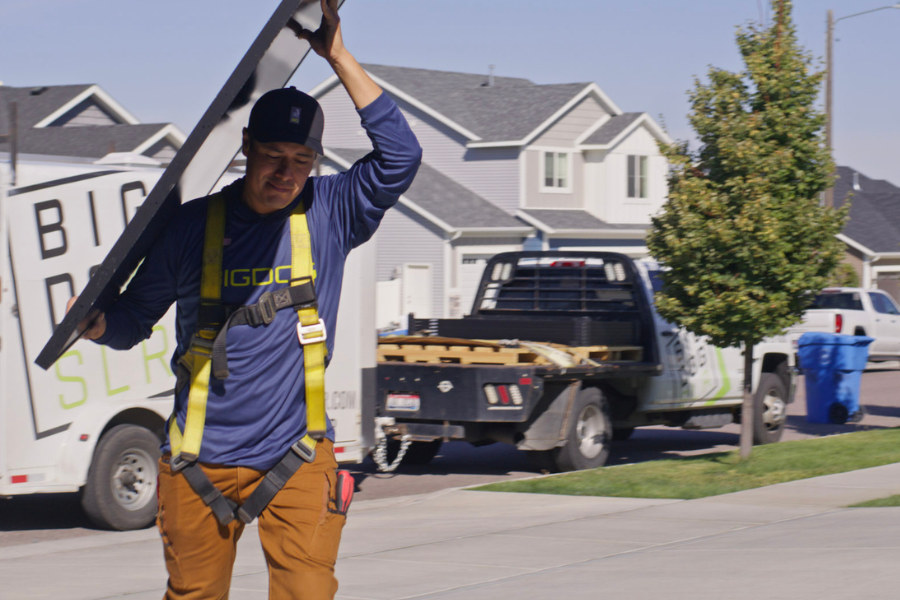Pros/Cons of Different Solar Panels
Those considering installing solar panels for their home or business probably have a lot of questions and decisions to make—decisions about financing, bills, grid type, etc. Having to sort through and decide what type of solar paneling would be best for your situation can seem daunting and time-consuming.
Big Dog Solar offers both mono-crystalline and poly-crystalline solar panels. No matter which you choose, Big Dog only installs Tier 1 solar panels. That means the manufacturer:
- has been making solar panels for more than five years
- has automated production systems and a high degree of vertical integration, and
- are either publicly listed on a stock exchange or have a strong and stable balance sheet.
Related post: Types of Solar Panels | Video Killed the Radio Star
So, no matter what, your solar panel will be of the highest quality. Hopefully this simple guide of the two main types of solar panels can help:
Mono-crystalline
Pros: The mono-crystalline solar panels are made from the highest-grade silicon available. They have the highest power-output of all panel types, so they require less space than other types of panels to yield the same energy levels. Mono-crystalline panels also last a long time; most providers have a 25-year warranty available for them. Customers tend to prefer the dark color of mono-crystalline panels, as well.
Cons: Mono-crystalline panels cost more than any of the other solar panel types.

Poly-crystalline
Pros: Compared to Mono-crystalline, poly-crystalline panels yield less wasted silicon in production. It is much simpler to make poly-crystalline panels, so they cost less, as well. All solar panels have somewhat lower energy output during very high temperatures, but polycrystalline cells are affected slightly less than others. These work well for businesses who have a lot of space at their location for panels.
Cons: Poly-crystalline panels are less efficient than mono-crystalline, and therefore require more space to harvest as much solar energy.
For more information, click here.

FAQs
What types of solar panels does Big Dog Solar offer?
Big Dog Solar offers both mono-crystalline and poly-crystalline solar panels. All panels are Tier 1, ensuring high quality and reliability.
What are the benefits of mono-crystalline solar panels?
Mono-crystalline panels are made from high-grade silicon, offering the highest power output and efficiency. They require less space, have a long lifespan with a 25-year warranty, and are preferred for their sleek, dark appearance.
Why might someone choose poly-crystalline solar panels over mono-crystalline?
Poly-crystalline panels are more cost-effective and produce less silicon waste during manufacturing. They are slightly less affected by high temperatures and are ideal for locations with ample space.
What is the main drawback of mono-crystalline solar panels?
The main drawback of mono-crystalline panels is their higher cost compared to poly-crystalline panels.




.png)








